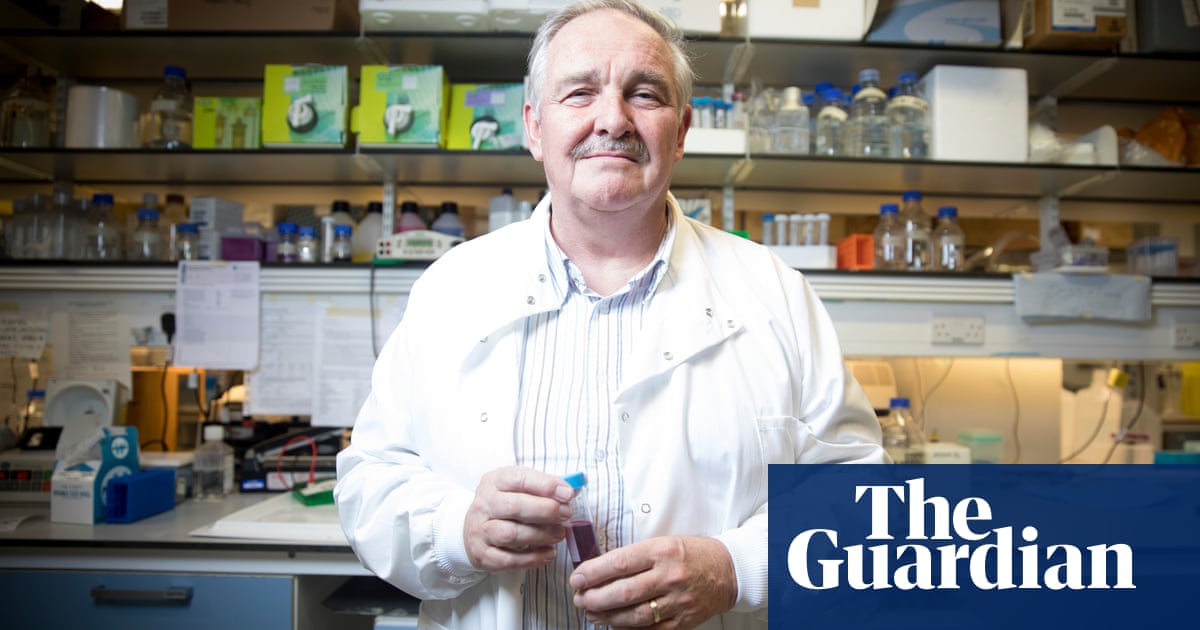Scientist David Nutt memorably said alcohol is more dangerous than crack. Now, he is trying to invent a healthy synthetic alternative, and the race is on to get it to market.
This is what my brain looks like,” says David Nutt, showing me an intense abstract painting by a friend of his that is sitting on the windowsill in his office. Nutt’s base at Hammersmith hospital has a cosy, lived-in feel – a stark contrast to the gleaming white laboratory he oversees as director of the neuropsychopharmacology unit at Imperial College London. Lab coats hang on a hook by the door, an ancient kettle sits in the corner and next to the painting is an unruly collection of objects that offer clues to his research interests: brain-shaped awards, an atomic model of Nutt’s invention for detecting inflammation in the brain of Alzheimer’s and Parkinson’s patients, a poster for the 1967 film LSD Flesh of Devil and two carved wooden mushrooms – the final items hinting at his role at Imperial’s psychedelic research group.
All that is missing is something to do with the demon drink, to reflect Nutt’s ambitious plan to bring a safe synthetic alcohol substitute called Alcarelle to the masses. Nutt has long been developing a holy grail of molecules – also referred to as “alcosynth” – that will provide the relaxing and socially lubricating qualities of alcohol, but without the hangovers, health issues and the risk of getting paralytic. It sounds too good to be true, and when I discuss the notion with two alcohol industry experts, they independently draw parallels with plans to colonise Mars.
Yet Alcarelle finding its way into bars and shops is starting to look like a possibility. Seed funding was raised in November 2018, allowing Nutt and his business partner, David Orren, to attempt to raise £20m from investors to bring Alcarelle to market. “The industry knows alcohol is a toxic substance,” says Nutt. “If it were discovered today, it would be illegal as a foodstuff. The safe limit of alcohol, if you apply food standards criteria, would be one glass of wine a year.”
As a psychiatrist, he says, “most of my professional life I’ve been treating people for whom alcohol is a problem, and a lot of my professional research relates to that”. A decade ago, Nutt was sacked from his position as a government drugs adviser after questioning the skewed moral standards by which we judge drug and alcohol use (he memorably said that horse riding was more dangerous than taking ecstasy). Shortly after this, he presented data in the Lancet showing that booze is more harmful to society than heroin or crack. Yet Nutt is no prohibitionist. He enjoys a “very small” single malt before bed, and even co-owns a bar, the irony of which causes him to erupt into one of his frequent and endearing guffaws. “My daughter and I own a wine bar in Ealing,” he says, after he has recovered his composure. “I’m not against alcohol. I like it, but it would be nice to have an alternative.” One day, he hopes to add Alcarelle to the menu at his bar.
more on theguardian.com



